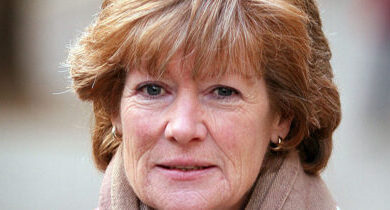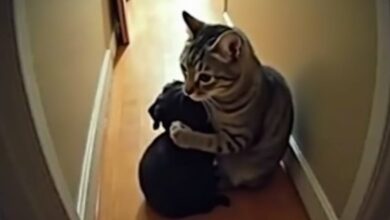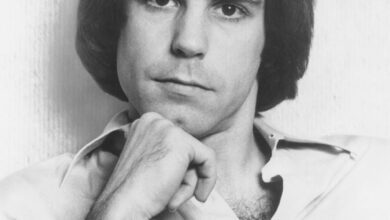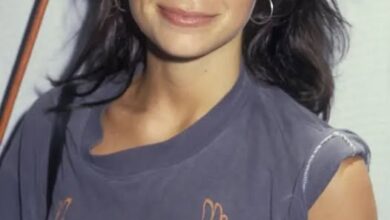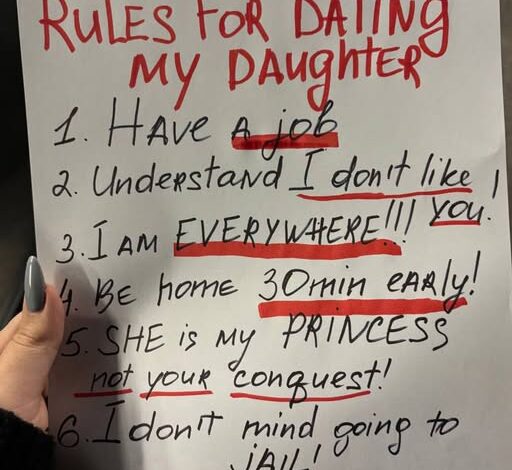
My Mom Thought No Man Was Good Enough for Me Until One Invited Her on a Date, Story of the Day!
At 37, I thought I finally had control over my own life — until my mother decided otherwise.
I loved her, truly, but living with her constant interference felt like being 15 forever. Every call from her came with a checklist of questions: “Are you wearing warm socks? Did you lock the door twice? Did that man look at you with respect or interest?”
I worked at a museum, curated art exhibits, paid my bills, had two degrees, and even owned my own apartment. But my mother — Barbara — was still the center of my orbit. She tracked my grocery trips, commented on my nails, and had once followed a food delivery guy to my doorstep “just to make sure he wasn’t casing the place.” She kept binoculars in her purse and a “suspicious activity notebook” in the glove compartment.
As a kid, it was endearing. By my 30s, it was suffocating.
Then I met Theo.
He was a literature professor — gentle, funny, patient. For the first time in years, I felt like I could breathe. I didn’t tell Mom about him at first; it felt deliciously rebellious to have a secret. Of course, it lasted exactly three days before she sniffed out the truth.
“Who’s this Theo?” she demanded. “He sounds suspicious.”
“Mom, he’s a man, not a government plot.”
She pouted, then dropped the subject — which should have warned me something was brewing.
The night Theo came over for dinner, I cooked from scratch (burned pie and all) and set candles. When he arrived with tulips and a bakery cake, I knew I was in trouble — the good kind. He was thoughtful. Kind. The way he smiled made me feel seen.
We were mid-conversation when a loud sneeze came from the closet.
Theo froze. “You’re not… expecting anyone, right?”
I opened the closet door and nearly fainted.
“MOM?!”
She sat cross-legged inside, wearing a headlamp and holding a thermos. “Oh, hi, honey. Just checking for mothballs.”
“Are you spying on me?”
She waved a hand. “Don’t be dramatic. I was ensuring your safety.”
Theo, bless him, extended a polite hand. “Good evening, Mrs. Sanders.”
“Call me Barbara,” she said sharply. “Theo is short. Like most male patients I’ve met. Sit down. I have questions.”
And just like that, my romantic evening turned into an interrogation.
“Do you have a job?”
“Yes, I teach literature—”
“Flexible hours?”
“Sometimes.”
“So, no structure. Got it.”
“Mom!”
“Quiet, Eliza. I’m talking.”
It went downhill fast. She grilled him about past girlfriends, finances, even his cholesterol. When she handed him a paper titled RULES FOR DATING MY DAUGTER — typo and all — Theo smiled weakly and excused himself.
“I’ll call you,” he said, eyes full of apology.
He didn’t.
For three days, I replayed the disaster over and over, humiliated and furious. Finally, I texted: “I’m sorry for how things went. You didn’t deserve that.”
He read it but didn’t reply.
Then, on the fourth day, there was a knock at the door. It was Theo — with flowers and a mischievous smile.
“Get dressed,” he said. “I planned a date. For you and your mom.”
“What?”
“Trust me.”
We picked her up. She was suspicious from the start. “Where are we going? I have laundry to hang.”
First stop: his classroom. Theo was lecturing on love in literature. Mom and I sat in the back as he spoke to his students about trust, vulnerability, and courage.
Mom leaned over and whispered, “He’s showing off.”
“Mom, shh.”
But she stayed awake — even smiled once.
After the lecture, Theo took us to the lake for a boat ride. He brought tea (her favorite kind) and strawberries.
“I don’t see the point of this,” Mom muttered, but she was clearly enjoying herself.
“So, Barbara,” Theo said warmly. “Any hobbies?”
“Suspicion,” she replied. “And crossword puzzles.”
He grinned. “You must be great at spotting patterns.”
She tilted her head, almost smiling. “I once found three typos in The New York Times.”
“I’m not surprised.”
Then, as if on cue, she slipped trying to reach the edge of the boat. With a splash, she disappeared into the lake.
“Mom!” I screamed.
Theo dove in immediately, hauling her back to the boat. She sputtered and laughed at the same time. “Don’t just stand there, Eliza! Get me a towel!”
He wrapped her in a blanket, and for the first time, I saw genuine warmth in her eyes.
“You didn’t even hesitate,” she said, voice soft.
“Of course not,” Theo replied. “You’re family.”
Her guard cracked a little that day.
He didn’t stop there. He drove us to a sports shop, bought us both tracksuits, and took us rock climbing. Mom protested but ended up scaling the wall halfway before yelling, “If I fall, I’m haunting you, Theo!”
By the time she reached the top, she was beaming.
That evening, he invited us both to dinner at his house. His place was immaculate, warm, and full of books.
“Did you clean this for us, or are you naturally unsettlingly tidy?” Mom teased.
“Bit of both,” Theo said, laughing.
She nodded approvingly.
As we sat on his terrace, the sun sinking behind the trees, something shifted. Mom leaned over to me. “You know… he’s not terrible. I was just scared. Your father left, and I didn’t want you to hurt like I did.”
“I know, Mom,” I said softly. “But I need to make my own choices.”
She sighed. “He loves you. I can see it.”
Theo came back with dinner — and then, suddenly, dropped to one knee.
“Eliza, you’ve made my world brighter. Your mom’s rules didn’t scare me — they prepared me. I want to spend the rest of my life with you. And yes, Barbara, I promise to return your Tupperware promptly.”
Mom smirked. “Well, finally a man with manners.”
I laughed through tears. “Yes. Yes, I’ll marry you.”
Theo slipped the ring on my finger, and Mom clapped like it was a Broadway finale.
Later, she whispered to me, “He passed all my tests. Even the ones I didn’t plan.”
In the months that followed, everything changed. Mom started taking Pilates, learned to swim, and even joined a book club — her idea, not mine. She still worried about me, but from a healthy distance.
We became two separate people who actually enjoyed each other’s company. She’d tell me stories about her fitness group; I’d tell her how Theo burned the toast again and called it “modern cuisine.”
For the first time, we weren’t a mother and child locked in orbit. We were family — real, imperfect, and free.
And when Mom toasted us at our wedding, she said, “I used to think no man was good enough for my daughter. Turns out, I just needed to meet the one brave enough to love both of us.”
